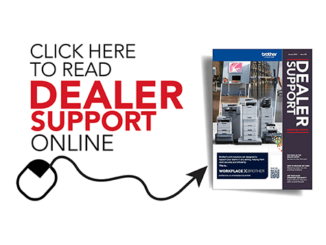
For business leaders and management teams, the word ‘efficiency’ has been at the heart of decision making, with the global pandemic forcing some tough decisions. However – no matter how hard you try, if you’re reliant on out-dated, over-complex processes, then achieving any real change will be tricky
Here, Rob Harrison, head of development at ECI Software Solutions explores how deploying specialist technology and taking a ‘less is more’ approach can help drive efficiency.
Left with few options, many businesses had to take bold and innovative action last year, shifting rapidly to online channels and automated production tasks. At the time this was deemed necessary to survive, as offices closed and non-essential workers were sent home.
Now, over a year on, many are realising the huge strides they’ve made when it comes to efficiency savings, having unintentionally sped-up decision making and improving their overall business model.
So, how could technology help your business streamline?
Keeping track
No matter the size of your organisation, finding time to undertake a comprehensive business review and effectively keep track of how time is being spent is virtually impossible. Using several systems that don’t communicate with each other wastes time, requiring you to log-in to numerous programs and join the dots yourself.
Instead, many now rely on an integrated ERP system to do much of this work automatically. Not only will this help you better manage daily processes, sales, contracts, stock, purchasing and even accounting, it will also ensure the whole team works together, using the same metrics and data.
Customer service
Obtaining accurate and up-to-date business analytics can significantly improve how you manage your business day-to-day, as well as improving your brand reputation and strengthening customer loyalty.
Now, the ability to quickly respond to or anticipate changing customer demand is hugely important and without a central system, able to keep track of previous orders and log important notes, you risk losing customers to the bigger more streamlined firms.
With an effective customer relationship management (CRM) tool you can ensure every customer gets the best possible level of service. Equipped with all the information, you can better understand customer purchasing trends, manage leads in your sales pipeline, and effectively monitor new opportunities.
Previously, these tasks might have been split across different departments, reliant on manual call logs or time-consuming telephone conversations to keep everyone updated. Instead, cloud-based dashboards centralise all important information, accessible from anywhere and at any time.
Time management
This won’t just help from a customer service perspective, a CRM system can also streamline how your sales team manages their time. Via a dashboard, they can easily view their appointments, tasks, activities, leads, and opportunities.
Also, by linking existing sales data with ongoing sales activities, the team can efficiently prioritise initiatives and create meaningful plans to reach their goals. Given the uncertainty of last year, plans often had to be changed or adapted and dashboards proved a worthwhile investment for many businesses.
While the investment may feel daunting, cloud-based ERP systems offer an array of benefits, allowing you to streamline your business processes and gaining a far greater insight into how resources are allocated, the day-to-day workings of your team and ensuring customers remain satisfied.
To find out more about ECI Horizon, or book a demo, visit the website.
SPONSORED: This is a sponsored article published on behalf of ECI Software Solutions. For editorial questions or comments please contact the Dealer Support team at info@intelligentmedia.co.uk


Be the first to comment